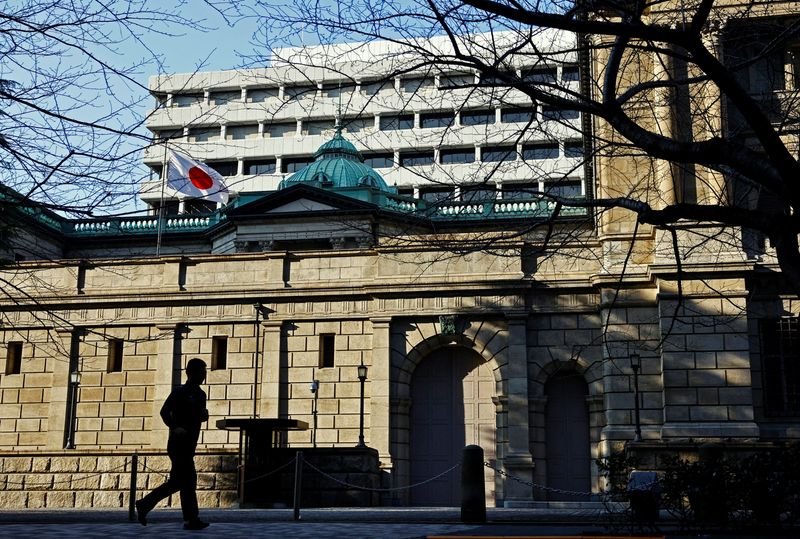Japan's core inflation hits 19-month high, keeping alive BOJ rate-hike bets
Published by Global Banking & Finance Review®
Posted on February 21, 2025
3 min readLast updated: January 26, 2026

Published by Global Banking & Finance Review®
Posted on February 21, 2025
3 min readLast updated: January 26, 2026

Japan's core inflation hit 3.2% in January, the highest in 19 months, prompting speculation of further BOJ rate hikes amid rising inflationary pressures.
By Leika Kihara
TOKYO (Reuters) - Japan's core consumer inflation hit 3.2% in January for its fastest pace in 19 months, data showed on Friday, reinforcing expectations that the central bank will keep raising interest rates from levels still seen as low.
Bond yields rose on the data, as markets factor in the chance that the Bank of Japan (BOJ) could hike interest rates more aggressively than initially thought as inflationary pressure mounts.
The year-on-year increase in the core consumer price index (CPI), which excludes fresh food prices, slightly exceeded a median market forecast for a gain of 3.1% and followed December's rise of 3.0%.
"While services inflation isn't accelerating that much, goods inflation isn't slowing either," said Ryosuke Katagi, market economist at Mizuho Securities.
"The BOJ will likely see scope to raise interest rates on the view price conditions are moving in line with its forecast."
A separate index stripping out costs of both fresh food and fuel, which is closely watched by the BOJ as a better gauge of demand-driven inflation, rose 2.5% in January from a year earlier, the data showed.
It was the fastest year-on-year pace since March 2024, when the index rose 2.9%.
The two-year Japanese government bond (JGB) yield rose 1.0 basis point (bps) from Wednesday to stand at 0.830% after the data, for its highest level since October 2008.
For nearly three years, inflation has exceeded the central bank's target of 2%, underlining rising inflationary pressure that has prompted hawkish remarks from BOJ policymakers such as Wednesday's comments by board member Hajime Takata.
The BOJ raised its short-term interest rate to 0.5% from 0.25% in January, reflecting its conviction that Japan was making progress in sustainably achieving its inflation target of 2%.
Governor Kazuo Ueda has signalled his readiness to keep raising rates if wages continue to increase and underpin consumption, thereby allowing firms to keep hiking pay.
The BOJ has said solid wage growth will prod service-sector firms to pass on rising labour costs, and replace rising raw material prices as the key driver of inflation in Japan.
But stubbornly high prices of fuel and food throw into doubt the chance that cost-push pressure will dissipate. In January, households still battled soaring prices of rice, vegetables and other food, as well as a 10.8% hike in energy costs.
Headline consumer inflation, including fresh food prices, hit 4.0% in January, accelerating from 3.6% the previous month, and standing at their highest in two years.
By contrast, services inflation rose 1.4% in January from the previous year, slowing from a gain of 1.6% in December, the CPI data showed.
Japan's economy expanded an annualised 2.8% in the final quarter of last year on robust business expenditure and consumption, shoring up the BOJ's case for more rate hikes.
A majority of economists polled by Reuters expect the BOJ to hike rates once more this year, most probably during the third quarter, to 0.75%.
(Reporting by Leika Kihara; Editing by Jamie Freed and Clarence Fernandez)
The article discusses Japan's core inflation reaching a 19-month high and the potential for BOJ rate hikes.
Due to rising inflationary pressures and core inflation exceeding the BOJ's target.
Japan's economy expanded by 2.8% in the last quarter, driven by business expenditure and consumption.
Explore more articles in the Finance category
